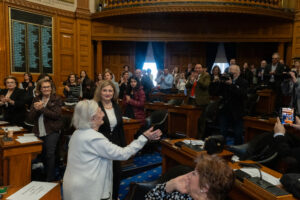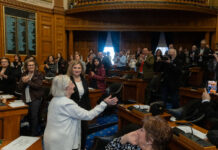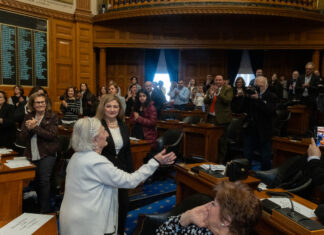By David W. Dunlap
WILDER, Vt. (New York Times) — In a career that spanned four tumultuous decades, Farnsworth Fowle witnessed World War II at battlefronts from North Africa to the Balkans, the creation of the state of Israel and the death of King George VI of Britain.
His most affecting account, however, was a moment-by-moment chronicle of the effort to integrate Central High School in Little Rock, Ark., in September 1957. The prospect that nine black children were to enter the school drew a mob of white supremacists whose fury forced the children to leave after a few hours.
“Two Negro boys came walking up 16th Street with books under their arms. The crowd tensed until it saw that they were headed for an all-Negro school several blocks away.
“‘Look at him smiling! Thinks he’s smart!’ came a shout from the crowd. …
“The school gong sounded at 8:45. The Star-Spangled Banner and the school flag were hoisted on the flagpoles on the school lawn. …










